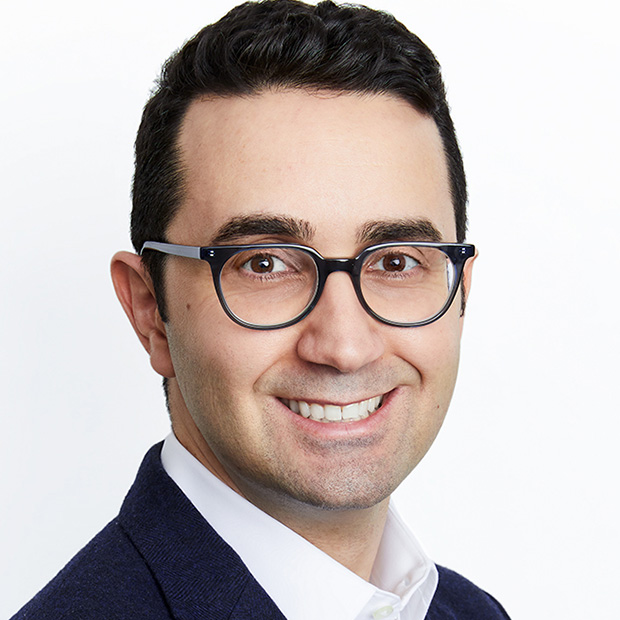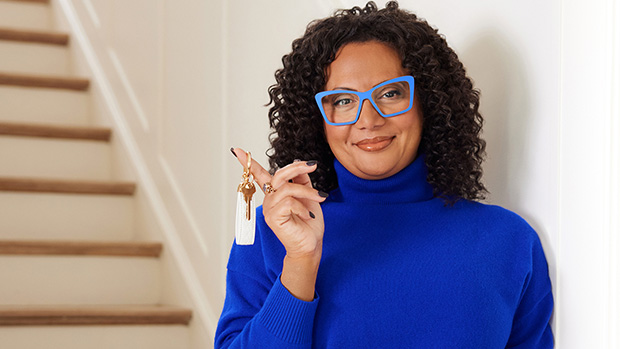Cineflix's JC Mills on raiding the catalogue
It’s an interesting time to be rebooting a series like Property Virgins in the current real estate market, but as JC Mills from the show’s producer Cineflix outlines, it’s an even more intriguing moment to be trying to get commissions away, filmed and paid for.

JC Mills
With rents and mortgage rates spiralling, and next to no chance first-time buyers can even raise a deposit in the first place without pushing nan down the stairs, it’s an interesting time to be trying to launch property shows.
That’s the challenge that’s been facing US cablenet operator A+E Networks as it builds out the Home.Made.Nation. strand of it’s A&E network. One of its recent swings has been with classic HGTV series Property Virgins, commissioning a new 20-episode reboot version while also picking up a back catalogue in excess of 100 episodes in a deal with producer and distributor Cineflix.
For JC Mills, president and head of content at Cineflix Productions in Toronto, the series is perfectly timed for the audience.
“Generationally every home buyer has faced a different challenge,” he explains. “A format like this offers new solutions. For A&E, audience takeaway was so important to them that they wanted viewers to watch the show, be entertained, and walk away knowing more about home-buying than they did before the episode.”
Of course, the television market is facing financial pressures of its own as advertising dollars follow younger eyeballs to digital, leaving traditional networks facing inflationary costs on their original productions with less revenue to pay for them. Commissioning is down across the board and at some buyers it has ceased completely, and production companies are stuck in a doom spiral developing ideas nobody can buy.
Again, for Mills, having ownership, and tape, of a proven hit was a welcome find in the Cineflix catalogue.
“It’s one of those brands you come across in the catalogue and are thrilled to have, mostly because we have tape to sell and it’s an evergreen format,” he says.
“Back in 2014 you could own your own content, control your rights and destiny. A lot of that went away with consolidation. As a Canadian company in business for 25 years, we were there for those early days, especially with Canadian tax credits and international financing. The show was at HGTV for a long time and they were an important partner. They decided not to renew the license on 100s of hours and we identified A&E and the Home.Made.Nation. block as a great destination because you can license the tape and do a reboot of your own version at some point in the future.
“Network shows like this with a long track record de-risk the whole play because the show is evergreen. For A&E it was a safer play than a random new show with no track record.”

The Property Virgins reboot comes with a back catalogue of 100 episodes
It’s one of the reasons it’s currently a great time to be a distributor, and Cineflix Productions is working closely with its London-based sales arm Cineflix Rights to identify other such opportunities. When money is tight buyers turn to acquisitions rather than commissions, and what commissions they do make they like to de-risk by rebooting tried and tested formats.
“I believe everybody would tell you the networks have less money to invest in original commissions,” Mills says. “You have a tonne of competition, not only from Netflix but YouTube, TikTok… There is a lot of defensive behaviour where you renew shows you wouldn’t have renewed five years ago because you’re concerned if you don’t then what do you put in its place? In the marketplace you’re seeing less real estate for new shows and networks saying they’d love to look at it but ‘just in total candour we’re not having a development meeting for a few months and we’re good until the top of 2026’. Great, so I can’t make a new show for you for a year and a half.”
Will it, therefore, be a good time to be a distributor a year or 18 months from now, when the catalogues have been exhausted and there is no pipeline of new content to replace it?
“Development is still a thing,” Mills sys. “The development pipeline is as slow as it’s ever been. It’s no longer a six-month cycle. You do your own internal development, spend a month or two working on an idea, you find a talent, you shoot tape and do a Zoom and a deck. Then you go to market and it takes six weeks to get answers if you’re lucky, some don’t answer at all which is always fun and appreciated. Then you maybe get lucky and get a deal. After that another three or four months. If you’re lucky that’s nine months, and then you’ve got to hope they say yes. If they don’t, because you have an amazing piece of tape and development you spent nine months on, you go back out to market and try to land that plane because you’ve put a tonne of resource into it and it’s the glossiest thing you’ve got.
“I don’t think this changes in 12 months. A distributor is as important now as ever. Unless you’re a producer with amazing brand relationships and know exactly who to call you’re never going to get 50-60% of the budget by having a US broadcaster and then finding the rest yourself. Where does it come from? It comes from tax credits if you’re fortunate enough to be producing in a jurisdiction that has tax credits available. Then you have your distribution, which historically will not be more than 10-12% of a deficit.
“If you’re a US producer that is used to having things commissioned, you’re at a disadvantage versus Australia or Canada where you almost never come out of your first offer fully financed, so you have to figure out how to fill that gap. Now somebody says ‘I love it’ but they can only do it for £185k/per hour and the budget is £300k, then you have to go ahead and find the other £115k. You’re like, what do I do? Distributor is a very important role and critical for the next 24 months.”
Will this lack of original content, rush of reboots and repeats, not simply exacerbate the bleed of the audience away from traditional linear and towards digital and social?
“Netflix got out of the gate early with a sledgehammer for every streamer out there. They will own that market as long as they want,” Mills says. “Apple TV+ and Prime are playing a different game. Disney has a mountain of IP. What will happen with the rest of the streamers? That leaves the bigger players, Peacock, Paramount+, Max, and they’re not concerned about losing people to TikTok because they never had them. If you’re fighting for people who will watch some version of streamer-plus-cable, how do you keep them coming back to cable? That’s the question people are asking on the network side.
“Netflix will be buying a lot less, they will reserve their mountain of cash for massive swings they have to take as gamechangers that light the world on fire and end up as TikTok memes and self-marketing for Netflix. They will spend more money on acquisitions. If A+E have a hit show like Alone, lots of people now think that’s a Netflix show. Cable can licence hit shows to Netflix, that’s more revenue for the cable system. What it does mean though is they will let cable spend on development and once in a while lightning strikes. Then they will licence it from A+E who don’t have streamers to place it on at a fraction of the cost.”
So, what is a strategy for a North American producer looking to get new, original shows away in such a market?
“Focus on your strengths,” Mills says. “If you’re a company known for true crime I wouldn’t rush out and develop a food format. I spent two years at Nat Geo and you saw a bias from network execs when producers came through the door with a project out of the space they’re known for. It comes back to risk. If I have never made a true crime show and I am known as a food format producer, are you going to buy a crime show from me or somebody else that makes crime? We have re-entrenched in development on things we do well – crime, lifestyle, male skewing. You won’t see us develop a Bravo-style Housewives show. It’s wasted time and that’s the most important resource you cannot get back.”
Hence Property Virgins which, as the original company behind Property Brothers, continues a long Cineflix trend of such content. “When I got here and saw the slate and we didn’t have anything for HGTV I said, that’s crazy,” Mills admits.
Cineflix is also actively looking for partnerships as it attempts to navigate these choppy waters.
“You’re selling your ability to make that thing and if a network would rather see somebody else in that chair but you have the format then I’m bringing them with me. Let’s collaborate and partner rather than not get the commission because 100% of zero is zero,” Mills says. “A network asked if I would mind producing something if it’s not my show, 1,000% I’m in. What do you need us to make? I want to make sure that everybody out there hears that we are very open to partnering. I will come to you if it’s a space we don’t know.”
And when does this all get better? Is it just a case of ‘Survive to ‘25’?
“Everyone needs to remember the last 15 years were ridiculous, a massive content bubble, peak TV, new money entering the system,” Mills says. “The unscripted business from the writer’s strike and shows like American Pickers and Pawn Stars came out of that. Reality was available at a fraction of the cost, so channels did more of that. We lived in a massive bubble because of market conditions, Covid and the Netflix correction – maybe streaming isn’t the pill to cure all ills we hoped it was, we need to take more air out of the balloon.
“We’ll need more consolidation which will come but in what form we’re not sure. We’ll probably be left with five streamers. Assuming Netflix and Apple TV+ want to keep doing what they’re doing they will be here forever along with Disney which leaves room for one or two more, who’s it going to be?
“It will result in more job losses and people leaving the business. When you’re growing people enter the business, when it contracts people have to leave, that’s an unfortunate fact about where we are. I want to keep as many people employed as we can but you also have to keep businesses afloat and when nobody is buying shows how do you manage that?”








































